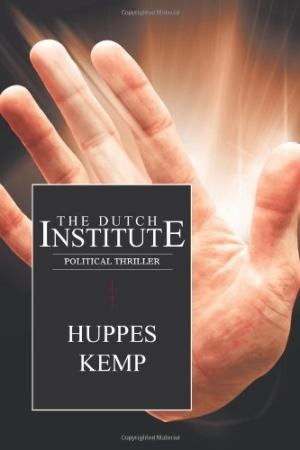
The Dutch Institute
Powerful characters and a timely message make this medical novel a first-rate thriller.
In a world where people talk a lot about Obamacare, The Dutch Institute by Dutch authors Wim Huppes and Mirjam Kemp raises some worthy questions about the single-payer health-care system in addition to being a fine thriller.
Maarten Keyser lives with his wife, Shifrah, in the Low Country. Maarten’s employer, the Dutch Institute, which controls the country’s nationalized health care, dislikes the fact that he writes manuscripts openly criticizing the way the current single-payer bureaucracy metes out treatment to patients. He argues that the Institute should approve experimental regimens instead of simply sticking with only preexisting drugs. The Keysers have a personal stake in this matter; Maarten suffers from cancer and lacks the funds to seek out cutting-edge drugs without support from his employer. In response to his calls for “the abolition of the single-payer system … in the treatment of end-stage cancer,” his employer feels threatened.
“Stop being so uncooperative. We are screening your office computer for irregularities,” says one manager, while another colleague adds, “We can’t have a revolutionary here at the Institute.” Stonewalling the protagonist, treating him like a criminal, and subjecting him to unnecessary monitoring simply for voicing his opinion—all of these things tap into the fear many citizens feel as they contemplate how to effect change in governments that use counterterrorism measures to spy on their own citizens. Also, right now, the call for single-payer health care in the United States resounds as loudly as the fear of Big Brother bureaucracy. The book paints a chilling, timely picture of how Obamacare could be implemented horribly when detailing the intransigence of the Institute. This novel explores the themes of health-care crises, the triumph of the underdog, and the power of love.
Maarten and Shifrah are easy underdogs to root for because their passions are so tangible. Although physically disoriented and weak, the dying Maarten doggedly pursues his cause for himself and other patients in similar situations. Physical assault and verbal attacks fail to stop him. Maarten also frets about the toll the crusade takes on Shifrah and their beloved daughter. While he worries about debt, the two support him no matter what. Some of the novel’s most pulse-pounding scenes occur when Shifrah, a former secret agent, infiltrates the Institute to find evidence with which to blackmail her husband’s employers, in hopes the information she finds will force the ministry to pay for Maarten’s cancer treatment. Huppes and Kemp possess considerable talent to make an argument seem as high-stakes as a hostage situation and a health-care official as calculating as a despot plotting a genocide.
The plot almost goes off the rails, however, when Maarten and Shifrah take drastic, unexpected action that stretches the story’s credibility. Also difficult to keep track of is the change of verb tenses between chapters. Maarten narrates his chapters in the first-person, present tense, while sections from others’ viewpoints are told in the third-person past tense. Powerful characters and a timely message overwhelm these hiccups, however, making this a first-rate thriller.
Reviewed by
Jill Allen
Disclosure: This article is not an endorsement, but a review. The publisher of this book provided free copies of the book and paid a small fee to have their book reviewed by a professional reviewer. Foreword Reviews and Clarion Reviews make no guarantee that the publisher will receive a positive review. Foreword Magazine, Inc. is disclosing this in accordance with the Federal Trade Commission’s 16 CFR, Part 255.
